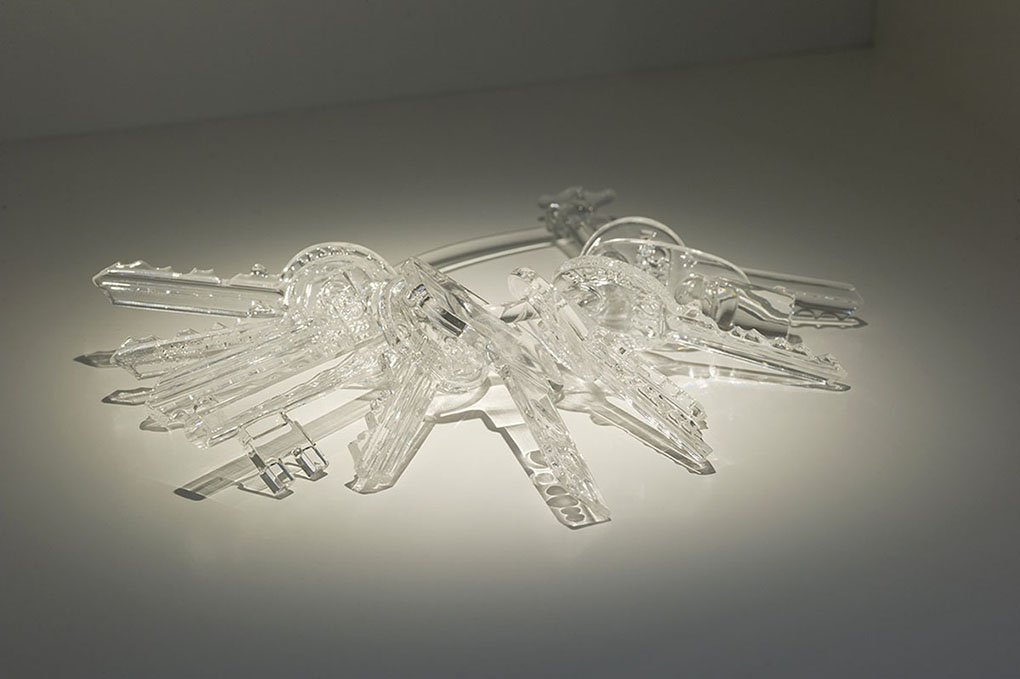Cancellation and censorship in times of war

The Museum Watch committee is following with concern the dreadful situation in Gaza and its repercussions in the worlds of art and culture—more specifically, its consequences for artists and curators who express their support for the Palestinian people. Since Israel's war on the Palestinian inhabitants of Gaza in response to the horrific 7 October attack by Hamas and the taking of Israeli hostages, we are witnessing unprecedented international censorship of artists and curators who have expressed their political views and support for the Palestinian people, particularly in Canada, Germany, and the United States, to name but a few countries. The list is long and the situation is serious, no doubt reflecting the gravity of the crisis. Given CIMAM and Museum Watch’s dedication to museums of modern and contemporary art, we will focus on public cases that have taken place in museums—while not forgetting the large number of similar cases in art biennales, universities, music, film and literature festivals, art galleries and even auction houses—which have put pressure on artists and curators, threatening to sanction or actively sanctioning them for their support of the Palestinian people or simply their demand for a ceasefire. This situation contributes to an already polarized world, leaving no doubt that we are all implicated.
On November 13, 2023 Museum Folkwang in Essen, Germany, cancelled “Afrofuturism” curated by Berlin-based curator Anaïs Duplan, as a part of the exhibition, “We is Future. Visions of New Communities” which was due to open on November 24. The reason given was their pro-Palestine social media posts. The narrative is posted on the archive_of_silence Instagram account and it states, “Museum director Peter Gorschlüter informed Duplan of the cancellation via email, deeming Duplan’s posts ‘unacceptable’ for not acknowledging the Hamas attack on Israel and characterizing the Israeli military operation in Gaza as genocide. Gorschlüter further referenced a post shared by Duplan on November 10 that supported the Boycott, Divestment, Sanctions (BDS) movement, citing the (disputed and legally not binding) BDS resolution of the German Bundestag from 2019.”
A few weeks later, the Saarland Museum’s Modern Gallery in Saarbrücken, Germany cancelled an exhibition by Candice Breitz scheduled for 2024 because of the artist’s statements on the violence taking place in Gaza. In an email quoted in ARTnews, Breitz said she learned of the show’s cancellation from the media, specifically from the Saarbrücker Zeitung. “In most democratic cultures,” Breitz wrote, “those who are deemed guilty are given the chance to speak and defend themselves before they are condemned and de-platformed. But the climate in Germany at present is such, that many Germans feel absolutely justified in violently condemning Jewish positions that are not consistent with their own, in their zeal to confirm their own dedication to anti-antisemitic principles.”
While the Wexner Center for the Arts, affiliated with Ohio State University in Columbus, Ohio, has maintained Jumana Manna’s current exhibition, “Break, Take, Erase, Tally,” it postponed a panel discussion scheduled for November that was to feature her, stating in a post on the event page: “The Wexner Center for the Arts has cancelled the Director’s Dialogue on Art and Social Change. Due to current world events, we do not feel this is the right time to have conversations about a region at war. We will look for opportunities to reconvene the panel at a future date.”
More recently, Samia Halaby's first solo exhibition in the US, due to open in February at the Eskenazi Museum of Art at Indiana University, Bloomington was canceled by the university via email due to “safety concerns”. A Palestinian-American abstract painter, Halaby is an Indiana University alumna and the first woman professor at Yale School of Art. More than 10,000 people signed a petition asking to reinstate her retrospective.
Amidst a worldwide wave of cancellations and related concerns in the art world, and as artists and curators express their views on the conflict between Israel and Hamas, there are a few cases of museums and institutions that have defended free expression. One noteworthy case is the Kunsthalle Basel, Switzerland which supported its newly appointed director, Mohamed Almusibli, who was facing a campaign against his selection led by a local paper that pointed out that Almusibli had recently signed two open letters in support of Palestine. A petition in support of the Kunsthalle and Almusibli’s appointment has been signed by 2500 members of the art community.
In this time of conflict and crisis, CIMAM would like to stress the importance of preserving the museum as a space for the free artistic expression. It is more urgent than ever that the diversity of artistic voices is guaranteed and that artistic positions from situations in crisis get more space, not less.
We stand against the cancellation and censorship of artists and curators.
In representation of the CIMAM Museum Watch Committee integrated by:
- Bart De Baere, (Chair) Director, M HKA Museum of Contemporary Art Antwerp, Belgium.
- Zeina Arida, Director, Mathaf: Arab Museum of Modern Art, Doha, Qatar.
- Amanda de la Garza, Director, Museo Universitario de Arte Contemporáneo (MUAC), Mexico City, Mexico.
- Victoria Noorthoorn, Director, Museo de Arte Moderno de Buenos Aires, Buenos Aires, Argentina.
- Malgorzata Ludwisiak, Artistic Director, The Museum of Modern Art in Warsaw, Warsaw, Poland.
- Agustin Perez Rubio, Independent Curator, Madrid, Spain.
- Kitty Scott, Independent Curator, Toronto, Canada.
- Yu Jin Seng, Deputy Director (Curatorial & Research), National Gallery Singapore, Singapore.
CIMAM – International Committee for Museums and Collections of Modern Art – is an Affiliated Organization of ICOM.